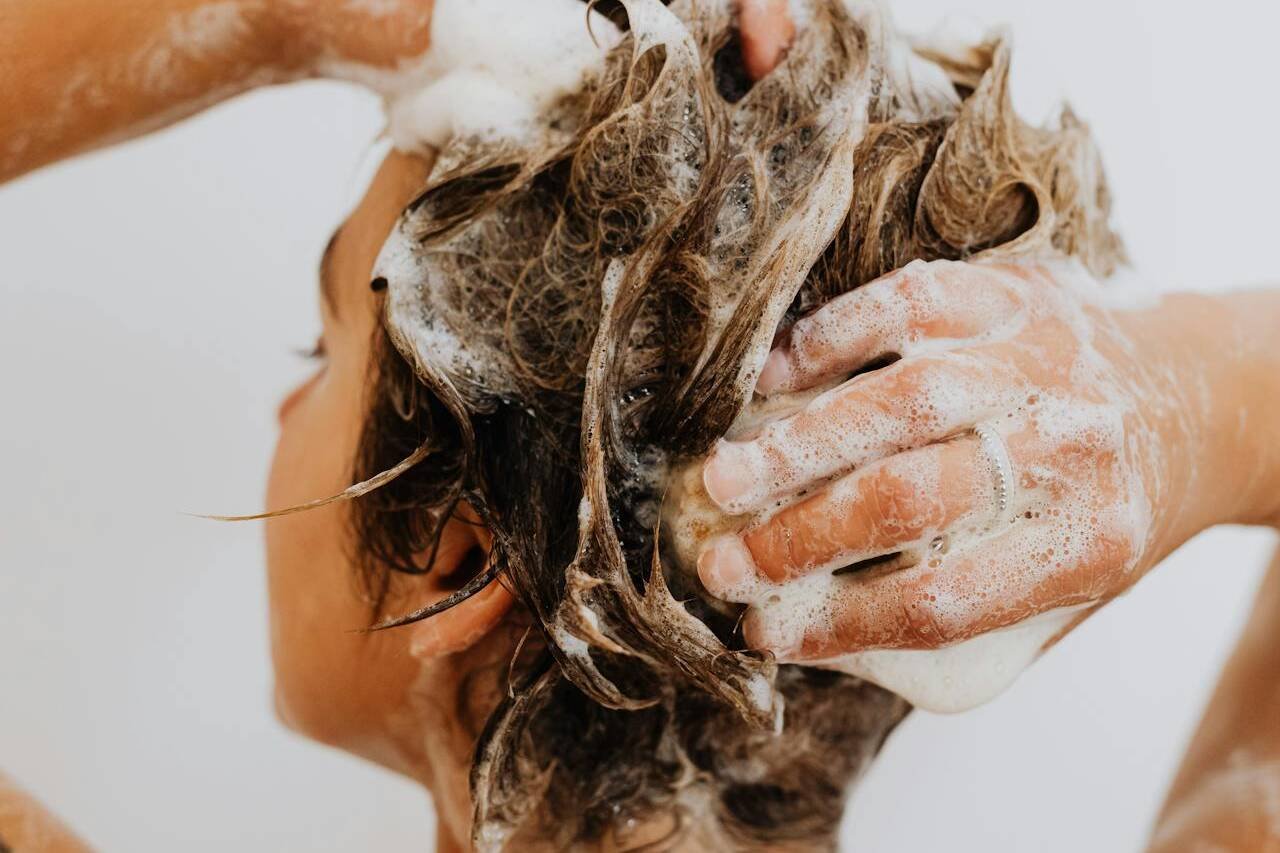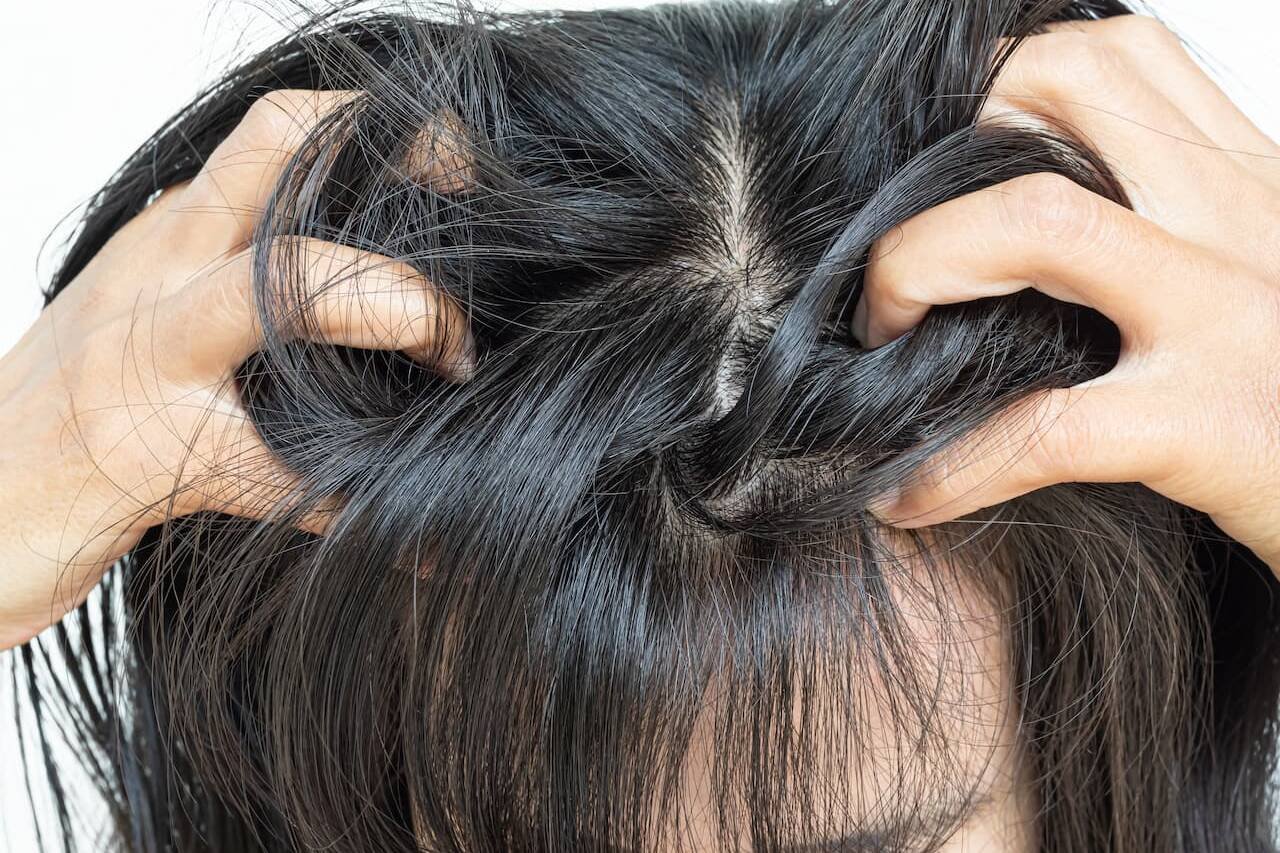What Exactly Is a Sensitive Scalp?
A sensitive scalp isn’t just ordinary discomfort—it’s your body’s alarm system signaling that something isn’t right. Unlike normal scalps that can withstand various products and environmental factors without issue, sensitive scalps react intensely to stimuli that wouldn’t bother others.
Dr. Alicia Mendez, dermatologist and scalp specialist at Harvard Medical School, explains: “A sensitive scalp is essentially skin that has a lower threshold for irritation. The nerve endings in the scalp are more reactive, and the skin barrier—which normally protects us—is often compromised.”
This compromised barrier is critical to understanding the condition. When functioning properly, your scalp’s outermost layer shields against irritants, bacteria, and moisture loss. When weakened, this protection falters, leaving you vulnerable to a cascade of uncomfortable symptoms.
The Telltale Signs You Shouldn’t Ignore
How do you know if what you’re experiencing is true scalp sensitivity rather than just a bad hair day? Look for these distinctive symptoms:
- Persistent itching that intensifies after using hair products
- Burning or stinging sensations, particularly when applying products
- Redness visible at the hairline or when parting hair
- Tightness or discomfort even when you haven’t used any products
- Flaking that doesn’t respond to regular dandruff treatments
- Pain when brushing or touching certain areas
- Increased sensitivity to water temperature
Most tellingly, these symptoms often appear shortly after exposure to triggers rather than developing gradually over time.
The Hidden Triggers Behind Your Discomfort
Scalp sensitivity rarely has a single cause. Instead, it’s typically the result of multiple factors converging to create the perfect storm of irritation. The most common culprits include:
1. Product Ingredients That Assault Your Scalp
The very products promising beautiful hair could be your scalp’s worst enemies. Research published in the Journal of Dermatological Science found that over 78% of patients with sensitive scalps showed adverse reactions to common ingredients in hair care products.
The worst offenders:
- Sulfates (sodium lauryl sulfate, sodium laureth sulfate): These powerful detergents strip away natural oils, compromising your scalp’s protective barrier
- Fragrances: Both natural and synthetic fragrances rank among the top allergens in cosmetic products
- Preservatives: Parabens, formaldehyde-releasers, and methylisothiazolinone can trigger allergic reactions
- Propylene glycol: A common moisturizer that paradoxically causes irritation in sensitive individuals
- Alcohol: Dries the scalp aggressively, worsening sensitivity
2. Underlying Dermatological Conditions
Sometimes scalp sensitivity isn’t a standalone issue but a symptom of something deeper. Conditions frequently mistaken for simple sensitivity include:
- Seborrheic dermatitis: Characterized by oily, yellow scales along with redness
- Psoriasis: Creates well-defined, silvery-scaled patches
- Contact dermatitis: An allergic reaction causing intense itching and sometimes blistering
- Folliculitis: Inflammation of hair follicles that resembles acne
Dr. Jonathan Wei, researcher at the International Dermatology Institute, notes: “Approximately 35% of patients I see with self-diagnosed ‘sensitive scalps’ actually have undiagnosed dermatological conditions requiring specific treatments.”
3. Environmental Aggressors
Your environment wages daily war against your scalp’s health:
- Hard water: Mineral deposits build up on the scalp, causing irritation and dryness
- UV exposure: Sunburn affects the scalp just as it does other skin, yet we rarely apply protection there
- Pollution: Particulate matter adheres to the scalp, causing oxidative stress and inflammation
- Temperature extremes: Both cold, dry air and excessive heat can compromise barrier function
4. Hormonal Fluctuations
The hormonal rollercoaster many experience monthly, during pregnancy, or during menopause directly impacts scalp sensitivity. Estrogen affects skin thickness and hydration, while androgen fluctuations influence oil production.
Research by Dr. Maria Hordinsky at the University of Minnesota found that 63% of women report increased scalp discomfort during hormonal shifts, with symptoms peaking during the luteal phase of the menstrual cycle.
5. Neurogenic Factors: The Mind-Scalp Connection
Perhaps most fascinating is the brain’s role in scalp sensitivity. Stress, anxiety, and depression can activate neurogenic inflammation, causing real physical symptoms without external triggers.
A groundbreaking study in the European Journal of Dermatology demonstrated that patients with self-reported sensitive scalps showed increased levels of substance P—a neuropeptide associated with pain and inflammation—even without visible skin changes.
Diagnosing the Uncomfortable Truth
If you suspect you have a sensitive scalp, proper diagnosis is crucial before treatment. Here’s the diagnostic pathway experts recommend:
Step 1: Self-Assessment
Begin by tracking your symptoms in relation to potential triggers:
- When do symptoms appear?
- What products were used beforehand?
- Are there environmental factors that consistently worsen symptoms?
- Do symptoms correlate with stress or hormonal cycles?
Step 2: Professional Evaluation
A dermatologist specialized in scalp conditions will typically:
- Conduct a detailed medical history
- Perform a visual examination, possibly using a dermatoscope for magnified views
- Order patch testing to identify specific allergens
- Take scalp samples if necessary to rule out fungal or bacterial infections
Step 3: Elimination Testing
For many patients, the gold standard remains the elimination approach:
- Discontinue all hair products for 2-3 weeks, using only lukewarm water
- Reintroduce products one by one, at weekly intervals
- Document any reactions to identify specific triggers
Dr. Kimberly Nichols, trichologist at Columbia University Medical Center, emphasizes: “Patience is essential during the diagnostic process. Finding the exact cause of scalp sensitivity often requires weeks of methodical testing, but the relief that comes with accurate diagnosis is worth every moment.”
Why Treatment Without Diagnosis Is a Recipe for Disaster
Many sensitive scalp sufferers fall into a dangerous cycle: self-diagnosing, trying random products marketed for sensitive skin, experiencing temporary relief followed by worsened symptoms, then switching to yet another product.
This approach not only fails to address the root cause but often exacerbates the condition by continuously exposing the scalp to new potential irritants.
A study of 500 sensitive scalp patients found that those who pursued proper diagnosis before treatment experienced 72% greater symptom improvement than those who relied on self-treatment.
The Road to Recovery Begins with Understanding
Living with a sensitive scalp isn’t just a physical burden—it carries psychological weight too. Research published in the International Journal of Trichology found that individuals with chronic scalp sensitivity reported significantly lower quality of life scores, with many experiencing anxiety and social withdrawal related to their symptoms.
The good news? Once properly diagnosed, most sensitive scalp conditions can be effectively managed. The key lies in understanding your specific triggers and creating a customized treatment approach—topics we’ll explore in our next article on creating the ideal care routine for sensitive scalps.
Remember: Your scalp’s sensitivity isn’t just annoying—it’s your body communicating important information. Listen carefully, seek proper diagnosis, and you’ll be taking the first crucial steps toward lasting relief.
Have questions about your sensitive scalp? Leave a comment below, and our experts will respond with personalized advice for your situation.
Related Articles
June 29, 2025
The Complete Guide to Post-Workout Hair Washing
Why Most People Are Washing Their Hair Wrong? You've invested time in…
June 7, 2025
How to Tell If You Have a Sensitive Scalp: 7 Warning Signs You Shouldn’t Ignore
Does your scalp feel uncomfortable after washing your hair? Do certain products…
May 17, 2025
Why Your Water Quality Might Be Sabotaging Your Hair Shine (And What to Do About It)
Is your shower secretly stealing your hair's shine? The water flowing through…



